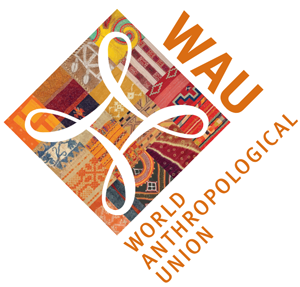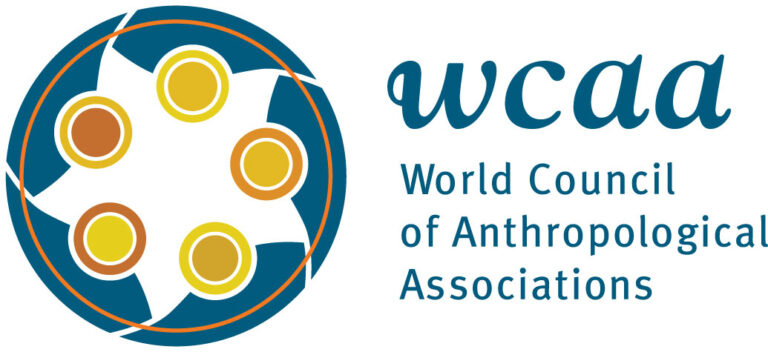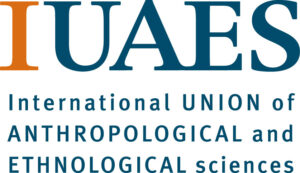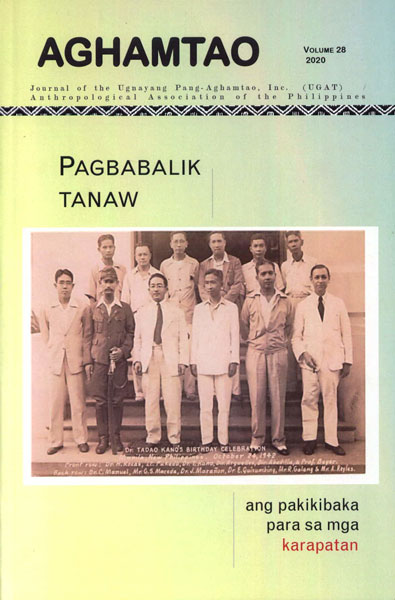Déjà Lu
Issue 11.2
January 2024
This is the first time that the editors of Deja Lu have decided to put together two issues in one year. Issues 11.1 and 11.2 correspond to 2023. The first issue collects articles originally published during 2021; and the second one, during 2020, 2021 and 2022. But the difference, or the novelty, is that issue 11.2 is a thematic one.
We expressly asked editors to share with us articles that addressed the pandemic in their respective journals. In this way, we sought to bring together in Deja Lu different views or perspectives on a same subject or problem.
The reason that prompted us to schedule an entire issue dedicated to a particular topic was clearly the disruption and consequent interruption of daily lives caused by the COVID-19 pandemic worldwide. An irruption that had and has different meanings depending on different contexts, but beyond that, it was erected as a watershed, a break in the course of time that deepened inequalities, exacerbated rivalries. While this could have been an opportunity to achieve new possibilities for humanity, we saw that on the contrary, it was more often managed with tools that laid bare the cruelty of excluding and expelling systems.
With this issue, we intend to contribute to the diversity of approaches and definitions that the coronavirus pandemic may have had, from the point of view of the anthropologies carried out in different parts of our world.
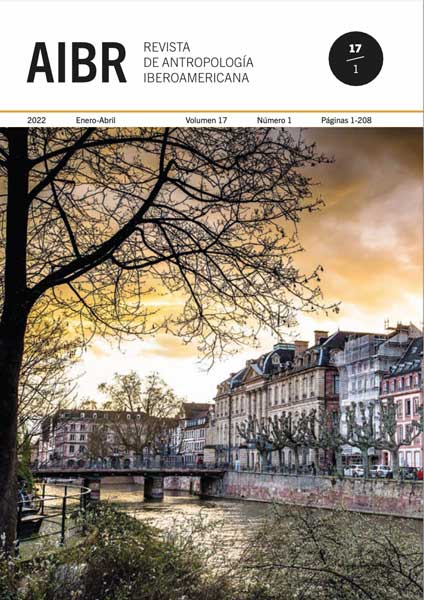
Díez, Pablo Saralegui. 2022. “Los cambios en las prácticas de consumo en el COVID-19: Retos para el escalamiento agroecológico desde el consume (Changes in Consumption Practices during Covid-19: Challenges for the Agroecological Scaling from Consumption)”. AIBR, Revista de Antropología Iberoamericana 17(1): 117-145.
Resumen: La COVID-19 ha supuesto una transformación en los sistemas de prácticas de consumo alimentario, en particular durante el confinamiento. Determinados cambios en los valores, significados y competencias en el consumo encuentran similitudes con las prácticas de consumo alternativo de las redes agroalimentarias agroecológicas, lo que supone una oportunidad para el escalamiento agroecológico desde el consumo. Esta contribución analiza las alianzas y similitudes entre las prácticas de consumo convencional y el alternativo en el contexto pandémico, así como las disputas sobre los términos y significados entre actores poderosos de la cadena agroalimentaria y las redes agroecológicas. El artículo concluye que existen aproximaciones impulsadas por el contexto pandémico que fomentan el incremento de practicantes de redes de consumo alternativo, aunque este posible proceso está sujeto a disputas de grandes actores económicos que pretenden apropiarse de simbologías, significados y prácticas alternativas para perpetuar su poder sobre el sistema agroalimentario.
Abstract: COVID-19 has brought a transformation in the systems of food consumption practices, particularly during the confinement. Certain changes in values, meanings and know-hows of practices of consumption are found to have similarities with those of alternative consumption linked with agroecological agri-food networks, which glimpse an opportunity for an agroecological scalation from the consumption side. This contribution analyses the alliances and approaches between conventional and alternative consumption during the pandemic, as well as the disputes on terms and meanings between powerful agri-food actors and agroecological networks. The article concludes that although there are certain approximations promoted by the pandemic context urging an increase of alternative consumption practicians, this process is not exempt of dispute due to big economic players trying to appropriate symbology, meanings and alternative practices to perpetuate their power over the agri-food system.
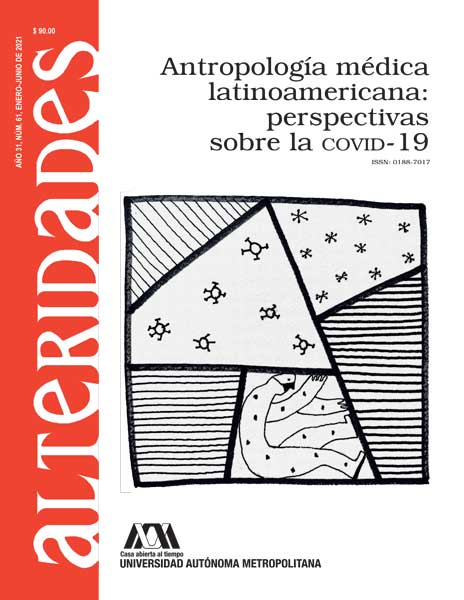
Pérez, Ana Victoria Morán. 2021. “Los consultorios adyacentes a farmacia en tiempos de covid-19: crisis y omisiones del sector salud (Pharmacy-adjacent doctor’s office during covid-19: Crisis and ommisions by the healthcare sector)”. Alteridades 31(61): 9-20.
Resumen:A pandemia de COVID-19 evidenciou a presença de Consultórios Adjacentes às Farmácias (CAF) como componente primordial do sistema de saúde mexicano. O objetivo deste artigo é analisar o papel dos CAFs durante a crise sanitária a partir da compreensão das representações sociais na perspectiva da equipe médica. Com base em entrevistas semiestruturadas com médicos que trabalham nesses consultórios, localizados na Cidade do México, bem como em uma revisão de fontes secundárias, são evidenciados os elementos para manejar a COVID-19 e os fatores que influenciam na percepção de risco da equipe pesquisada. Conclui-se que apesar das omissões do sistema de saúde em incluir tais consultórios como serviços oficiais, estes são peça fundamental na atenção à doença causada pelo coronavírus. Além disso, a equipe médica teve a necessidade de readequar seus conhecimentos e práticas frente às novas condições.
Abstract:The covid-19 pandemic revealed the presence of the offices adjacent to private pharmacies (oapp) as a core component of the Mexican health system. The aim of this text is to examine the role of oapp during the health crisis, based on the social portrayal of the oapp’s doctors. Based on semi-structured interviews with physicians from pharmacies located in Mexico City, as well as a review of secondary sources, the article presents the responses to covid-19 and the factors that influence the risk perception of this personnel. It is concluded that despite the omissions of the health sector to include such clinics in the official strategy, these are a fundamental piece in the attention to coronavirus, in which the oapp’s physicians have had the need to adjust their medical knowledge and practice to the new conditions.
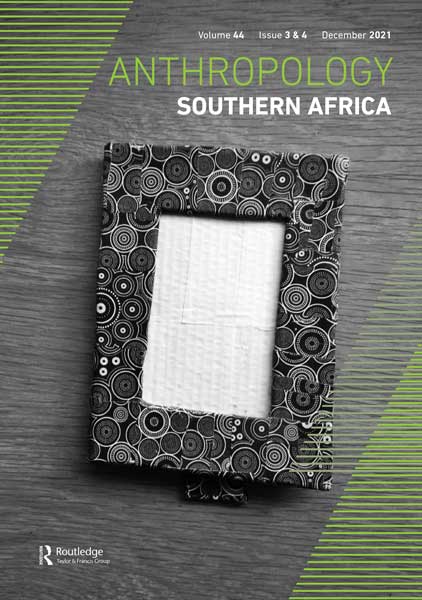
Price, Yusra and Elthéa S. de Ruiters. 2021. “The virtual field trip: conditions of access/ibility and configurations of care in teaching ethnography (during Covid-19)”. Anthropology Southern Africa 44(3): 138-154.
Abstract: Online learning as an emergency response to the Covid-19 pandemic provides a set of challenges that all educators had to navigate in their approach to teaching. This article details our experiences, as young educators, with developing a remote version of the anthropology field trip. The initial hard lockdown in South Africa determined the minimal conditions of emergency remote teaching (ERT). First, a necessary condition for the field trip was that teaching and learning had to take place asynchronously to account for the various contexts where students were situated. Second, we had to strike a balance between empathy towards students’ varying access to ERT and ensuring that the teaching objectives and standards remained appropriate for their level of study. Third, the role of mentorship in the process was a critical element of the virtual field trip and enabled us to engage affective learning strategies and facilitate epistemic access. Due to the shared navigation of ERT between students and educators, a reflexive and critical pedagogy strongly informed our later adaptations of the course. We conclude with reflections on the challenge of teaching/learning ethnography remotely and a brief statement on the value of critical and experimental pedagogies for remote situations.
Resumo: O aprendizado online como uma resposta emergencial à pandemia de Covid-19 oferece um conjunto de desafios que todos os educadores tiveram que enfrentar em sua abordagem do ensino. Este artigo detalha nossas experiências, como jovens educadoras, ao desenvolver uma versão remota da viagem de campo em antropologia. O rígido confinamento inicial na África do Sul determinou as condições mínimas de Ensino Remoto Emergencial (ERE). Em primeiro lugar, uma condição necessária para a viagem de campo era que o ensino e a aprendizagem deviam ocorrer de forma assíncrona para dar conta dos vários contextos em que os alunos se encontravam. Em segundo lugar, tivemos que encontrar um equilíbrio entre a empatia em relação ao acesso variável dos alunos ao ERE e a garantia de que os objetivos e padrões de ensino permaneceriam adequados ao seu nível de estudo. Terceiro, o papel da mentoria no processo foi um elemento crítico da viagem de campo virtual e nos permitiu utilizar estratégias de aprendizagem afetiva e facilitar o acesso epistêmico. Devido ao enfrentamento do ERE compartilhado por alunos e educadoras, uma pedagogia reflexiva e crítica influenciou fortemente nossas posteriores adaptações do curso. Concluímos com reflexões sobre o desafio de ensinar/aprender etnografia à distância e uma breve asserção sobre o valor de pedagogias críticas e experimentais para situações remotas.
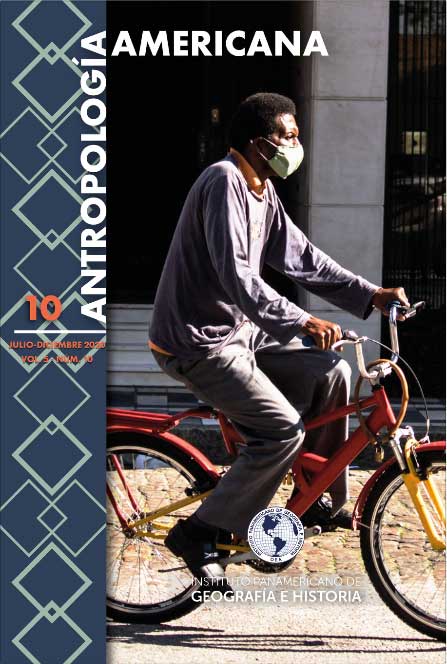
Beaucage, Pierre. 2020. “El geronticidio tranquilo. Etnografía del COVID-19 en Montreal, Canadá (marzo-agosto 2020)”. Antropologia Americana 5(10): 163-191.
Resumen: La pandemia actual constituye lo que Marcel Mauss llamaba un “fenómeno social total” con dimensiones médicas, políticas, económicas y simbólicas. Este último aspecto es el que nos interesa aquí. Hacemos una descripción etnográfica de la producción y del uso social de representaciones de la enfermedad en la ciudad de Montreal entre marzo y agosto del 2020. Considero que esas representaciones pertenecen a dos discursos. El primero, que llamo “cientista-populista” que fue el discurso dominante en Quebec durante ese periodo y fundó las prácticas del gobierno provincial, responsable de la salud pública. Es “cientista” porque evoca a la ciencia constantemente y afirma apoyarse en ella; sin embargo, no supo evaluar de forma científica el conjunto de factores implicados en la pandemia. El resultado fue la mayor tasa de contagio de Canadá, el sufrimiento y la muerte desproporcionada de ancianos, particularmente en las residencias para mayores. Ese discurso fue aceptado porque está construido conforme a la tradición del populismo nacionalista que caracterizó a varios gobiernos quebequenses durante el siglo xx. El otro discurso, que aquí denominamos “economicista-darwinista” es el que domina entre varios sectores de la élite económica canadiense y en otros países. Considera que la pandemia tiene que seguir su curso “natural” y que es preferible no perjudicar la actividad económica con el confinamiento. Este discurso no tuvo una posición dominante en Quebec durante el periodo considerado, pero se esta reforzando últimamente (“movimiento anti-cubrebocas”), frente a la poca efectividad de las políticas actuales del gobierno en materia de salud pública.
Abstract: The COVID-19 pandemia constitutes what Marcel Mauss called a “total social phenomenon”, with medical, political, economic and symbolic aspects. This paper is an ethnography of the production of representations of the disease and their social uses in Montreal between march and august 2020. I consider that these representations belong to two discourses. The first one, which I call ‘scientism-populism’, has been dominant in Quebec during this period and was the basis of the policies of the provincial Government, which is responsible for Public Health. “Scientism” since it constantly mentions science and claims its policies are based on it, although it was unable to develop a truly scientific approach which could take into account all relevant factors involved in the pandemia. The result of these mistakes was that Quebec had the highest rate of contagion in Canada. The price paid were the sufferings and the disproportionate death rate of elderly people, particularly those who lived in Elders’ Homes. Yet, this discourse was broadly accepted since its conforms with a tradition of nationalist populism which characterized many governments in Quebec during the twentieth century. The other discourse, a mix of economicism and neo-darwinism, dominates in various sectors of the economic elite in Canada and elsewhere. It considers that the pandemia has to follow its ‘natural’ course and that it is better not to harm the economy with confinement. It was not in a dominant position in Quebec during the period considered, but it has been gaining strength lately (as in the anti-mask movement) because government policies were seen as inefficient.
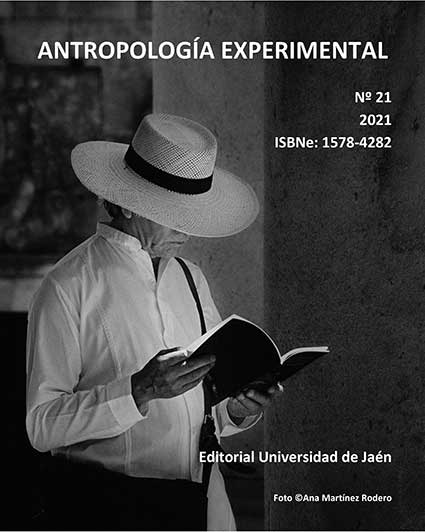
Massé Narváez, Carlos Eduardo. 2021. “Sobre el ambiente y el sentido de la investigación social antes y después de la pandemia: De la razón instrumental a la razón crítica”. Antropología Experimental 21:3–10.
Resumen: La pandemia del covid-19 muestra que la relación sociedad-naturaleza se encuentra en crisis como resultado de un modelo de desarrollo económico depredador de los ecosistemas, basado en la ciencia positivista. La ciencia moderna respalda un proyecto de dominación, encubierto de progreso técnico, que no garantiza el bienestar general de la humanidad. Durante décadas se ha impuesto una visión científica utilitarista, incluso en las ciencias sociales, subordinada a intereses clasistas. Los métodos científicos positivistas, responsables del desastre ecológico, fragmentan la realidad, controlan las agendas de investigación y operan sin vigilancia social. Ninguna ciencia es neutral. La razón instrumental cosifica la naturaleza y aísla el conocimiento en disciplinas inconexas. La teoría del caos y el pensamiento complejo sacuden los supuestos del positivismo e impulsan nuevas perspectivas de comprensión y acción en el mundo.
Abstract: The Covid-19 pandemic exhibits the crisis of the society-nature relationship, due to a predatory economic development model of ecosystems, based on positivist science. Modern science promotes a project of domination, which offers technical progress but does not guarantee the well-being of humanity. For decades a utilitarian scientific vision has been imposed, even in the social sciences, subordinated to class interests. The positivist scientific methods, responsible for the ecological disaster, divide reality, control research agendas, and act without social oversight. No science is neutral. Instrumental reason makes nature one thing and isolates knowledge in various disciplines. Chaos theory and complex thinking shake up the assumptions of positivism and drive new perspectives of understanding and action in the world.
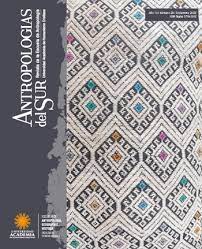
Barabas, Alicia. 2020. “LA AUTOGESTIÓN DE LA PANDEMIA COVID-19 EN LOS PUEBLOS ORIGINARIOS DE OAXACA, MÉXICO (Original Peoples of Oaxaca, México, and Self-determination of COVID-19 Pandemic)”. Antropologías del Sur 7(14): 1-13.
Resumen: Este trabajo intenta proporcionar una mirada etnográfica sobre un ejemplo de acción colectiva emprendida por los pueblos originarios del Estado de Oaxaca, en México, para prevenirse y afrontar la pandemia COVID19. Presentaré con detalle el caso de Santiago Comaltepec, un municipio en la Sierra Norte habitado por indígenas chinantecos; lo que piensan, las decisiones que toman y las acciones que realizan para enfrentar la pandemia. La gestión autónoma comunitaria es posible gracias al ejercicio de las formas tradicionales de elección y gobierno, llamadas en 2001 Sistemas Normativos Internos (SNI), legalizados en la Constitución de Oaxaca desde 1995 con el nombre de Usos y Costumbres. Sugiero que este sistema es una “utopía concreta” en proceso de construcción colectiva. Palabras clave: Pandemia COVID-19; pueblos originarios; sistemas normativos internos; Estado de Oaxaca, México.
Abstract: This paper try to give an ethnographical look over a positive exemple of collective actions address by originals peoples of Oaxaca state, in Mexico, to prevent and overcome the pandemic COVID-19. I shall present with detail the case of Santiago Comaltepec, a municipality at the Sierra Norte inhabited by chinantec indians; what they think, the decisions they make and the actions they take to confront it. The autonomous community responses are posible beacause the exercise of traditional forms of election and government, called in 2001 internal normative systems (SNI), legalize at the Constitution of Oaxaca State from 1995 with the name Usos y Costumbres 1995. I suggest this system is a “concrete utopia” in process of collective construction. Keywords: COVID-19 pandemic; original peoples; internal normative systems; State of Oaxaca, Mexico.

Sanò, Giuliana. 2022. “The eternal return of normality: Invisibility and essentiality of migrant farmworkers before and during the Covid-19 pandemic”. Anuac 11(2): 151-174.
Abstract: The Covid-19 pandemic has brought to light the central link between international mobility, migration policies and economic nationalism in Italy. Drawing on ethnographic data collected during and after the national lockdown, this article focuses on the motivations behind the amnesty approved in 2021 by the government as part of the “Decreto Rilancio”, which was aimed at regularising the status of undocumented migrant workers employed in those sectors of the labour market considered essential (agriculture, domestic and care work). Through the categories of essentiality and invisibility, the ambivalent role played by migrants within the labour market and the national economy are investigated, with a particular focus on the agri-food sector. Above all, the article focuses on the paradoxes made explicit by the amnesty introduced during the pandemic. The scarcity of submitted applications, especially in the agricultural sector, proved its complete ineffectiveness. This article aims to show how, in the face of the essentiality and numerical centrality of the migrant labour force within the agri-food sector, the national economic policy still does not recognise those workers’ importance, encouraging exploitative practices and policies of socio-economic marginalisation.
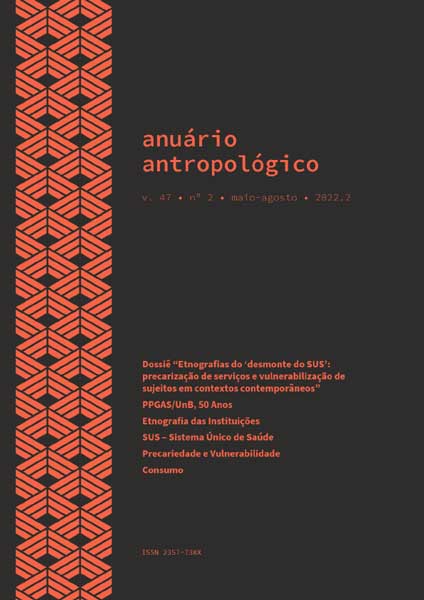
Bardy, João Balieiro. 2022. “Duplamente letal: a destruição psíquica dos profissionais da saúde durante a pandemia de COVID-19 (Doubly lethal: the psychological havoc of health care workers during the Covid-19 pandemic)”. Anuário Antropológico 47(2): 93-112.
Resumo:No presente artigo busco expor e desenvolver como a precarização do Sistema Único de Saúde (SUS) afeta os processos de subjetivação daqueles corpos que o compõem. Utilizando dados colhidos a partir de uma incursão etnográfica em um Centro de Atenção Psicossocial Álcool e Drogas (CAPS AD), em um município do interior paulista, o texto que se segue se organiza por uma elaboração dos impactos que grandes eventos epidemiológicos têm sobre a saúde mental das populações que afetam, particularmente no caso dos profissionais de saúde que seguem suas práticas profissionais sob estes contextos. Ademais, viso trabalhar a particularidade da pandemia de covid-19 a partir de uma análise das contingências políticas que tornam o caso brasileiro singular dentro do contexto global da pandemia. Em um segundo momento, conecto processos políticos macroestruturantes a micropolíticas cotidianas de cuidado e os afetos que elas engajam. Para demonstrar estes caminhos pelos quais grandes mudanças afetam trajetórias individuais, utilizo a base teórica desenvolvida pelo campo da antropologia das emoções. Para sustentar a argumentação, utilizei entrevistas e narrativas etnográficas que compuseram o meu material de campo durante a vigência de meu mestrado, que se deu integralmente durante a pandemia de covid-19.
Abstract: In this article, I seek to expose and develop how the precariousness of the Unified Health System (SUS) affects the processes of subjectivation of those bodies that compose it. Using data collected from an ethnographic incursion in a Center for Psychosocial Care Alcohol and Drugs (CAPS AD), in a city in the interior of São Paulo, the text that follows is organized by an elaboration of the impacts that major epidemiological events have on the mental health of the populations they affect, particularly in the case of health professionals who conduct their professional practices under these contexts. Furthermore, I aim to work on the particularity of the pandemic of covid-19 from an examination of the political contingencies that make the Brazilian case unique within the global context of the pandemic. In a second moment, I connect macro-structural political processes to everyday micro-politics of care and the affections they engage. To demonstrate these ways in which major changes affect individual trajectories, I use the theoretical basis developed by the field of the anthropology of emotions. To support the argument, I used interviews and ethnographic narratives that were part of my field material during the course of my master’s degree which took place entirely during the covid-19 pandemic.
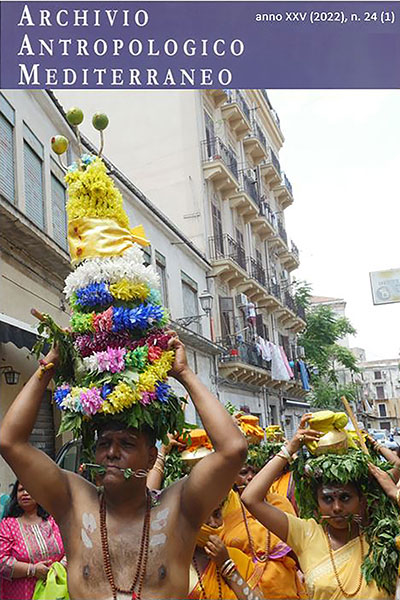
Mancuso, Alessandro. 2022. “The Ka’ulayawaa festivals among the Wayùu. Exploring continuities and variations in forms, meanings and contexts through ethnographic sources (I festival della ka’ulayawaa tra i Wayùu. Un’esplorazione delle continuità e variazioni di forme, significati e contesti attraverso l’esame delle fonti etnografiche)”. Archivio antropologico mediterraneo 24(1): 1-37.
Abstract: In this paper I review and compare the main sources of information about the ka’ulayawaa festivals among the Wayùu, an Amerindian people inhabiting in the semiarid Guajira peninsula (Northern Colombia and Venezuela). For their peculiar mix of songs, dances, imitative plays and competitive games, inserted into a same festive framework, these festivals are particularly interesting to be studied as expressive metacommentaries (in the sense of Turner) of Wayùu social structures, cultural values and worldview. Nevertheless, they have not so far been the subject of a specific anthropological analysis, also because they ceased to be celebrated around the middle of the twentieth century, that is, before the beginning of the first professional ethnographic studies on this population. Any attempt of “reconstruction” of the form, meaning and context the ka’ulayawaa festivals, and of their place in the Wayùu “socio-cosmology” must take in account not only the convergences and the divergences in the descriptions present in the ethnographic documentation available, but also, and above all, the continuous processes of change that have affected the Wayùu, at least in the last five centuries and, with an accelerated pace, in the last hundred years, and to which their sociocultural forms dynamically adapted. Most historical and ethnographic sources argued that in the ka’ulayawaa festivals “theatrical” expressiveness prevailed over symbolic efficacy, and “playfulness” over “rituality”. However, there are very strong and complex relationships between this “festive” and “playful” character of the ka’ulayawaa festivals and a series of fundamental cosmological oppositions of the Wayùu worldview, as described in the ethnographic literature. From the analysis that I have conducted, it can be said that the imitative and competitive games performed during the ka’ulayawaa festivals conformed and, at the same time, “played”, with these socio-cosmological oppositions and the order that they imply. This argument is reinforced by the most recent historical and ethnographical sources on these festivals, which highlight how their good outcome was perceived and considered among many Wayùu people as a “serious matter” and a source of concern and care on the part of all participants, especially the organizers, to the point of requiring prior intervention and approval of superhuman entities. It is therefore appropriate to take in account the coexistence of these traits in the ka’ulayawaa festivals in view of their possible analysis from the point of view of current theoretical reflections in anthropology on the relationship between rituality, playfulness and cosmology.
Astratto: In questo contributo esamino e confronto le principali fonti di informazione sulle feste ka’ulayawaa tra i Wayùu, un popolo amerindiano che abita nella semiarida penisola della Guajira (Colombia e Venezuela). Per il loro peculiare mix di canti, danze, rappresentazioni sceniche e giochi competitivi, inseriti in una stessa cornice festiva, questi festival sono particolarmente interessanti da esaminare offrendo dei “meta-commenti” espressivi (nel senso di Turner) delle strutture sociali, dei valori culturali e della visione del mondo dei Wayùu. Tuttavia, questi festival non sono stati finora oggetto di una specifica analisi antropologica, anche perché si è smesso di celebrarli intorno alla metà del Novecento, cioè prima dell'inizio dei primi studi etnografici professionali su questa popolazione. Qualsiasi tentativo di “ricostruzione” della forma, significato e contesto dei festival della ka’ulayawaa, e del loro posto nella “socio-cosmologia” Wayùu, deve tener conto non solo delle convergenze e delle divergenze nelle descrizioni presenti nella documentazione disponibile, ma anche, e soprattutto, dei continui processi di cambiamento che hanno interessato i Wayùu, almeno negli ultimi cinque secoli e, con ritmo accelerato, negli ultimi cento anni, e ai quali le loro forme socioculturali si sono dinamicamente adattate. La maggior parte delle fonti storiche ed etnografiche hanno sostenuto che nei festival ka’ulayawaa l'espressività “teatrale” prevalesse sull’efficacia simbolica, e che queste performances avessero un carattere più “ludico” che “rituale”. Tuttavia, è possibile identificare relazioni molto strette e complesse tra questo carattere “festivo” e “giocoso” dei festival ka’ulayawaa e una serie di opposizioni cosmologiche fondamentali della visione del mondo Wayùu, per come descritta nella letteratura etnografica. Dall’analisi che ho condotto, si può affermare che i giochi imitativi e competitivi eseguiti durante i festival ka’ulayawaa si accordavano e, allo stesso tempo, “giocavano” con queste opposizioni socio-cosmologiche e l’ordine che implicano. Questa argomentazione è rafforzata dalle più recenti fonti storiche ed etnografiche su questi festival, che mettono in evidenza come il loro successo fosse percepito e considerato da molti Wayùu come una “faccenda seria” e fonte di preoccupazione e cura da parte di tutti i partecipanti, in particolare gli organizzatori, al punto da richiedere l'intervento preventivo e l’approvazione di entità sovrumane. È quindi opportuno tenere conto della coesistenza di questi tratti nei festival ka’ulayawaa in vista di una loro possibile analisi dal punto di vista delle attuali riflessioni teoriche in antropologia sul rapporto tra ritualità, giocosità e cosmologia.
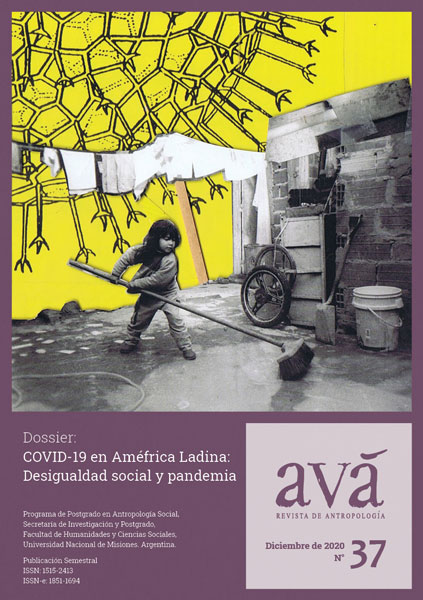
Aljanati, Lucía Inés and Stella Maris García. 2021. “SER AVA GUARANÍ, SER LA TIERRA. ETNOGRAFÍA DE UN DRAMA SOCIAL EN TIEMPOS DE PANDEMIA (To be Ava guaraní, to be the land. Ethnography of a social drama in pandemic times)”. Avá Revista de Antropología 37.
Resumen: A través de esta etnografía, analizamos las tensiones del actual proceso de reterritorialización de la comunidad ava guaraní (Iwi Imemb´y-Hijos de la tierra) asentada hoy en la zona florihortícola de La Plata, Buenos Aires, Argentina, a raíz de la expulsión que sufrieron de los territorios que habitaban en el noroeste del país. Circunstancias complejas en las que se entraman las disputas territoriales, la burocracia estatal y el racismo estructural, impiden su relocalización y agudizan los desafíos en el marco de la pandemia COVID-19.
Abstract: To be Ava guaraní, to be the land. Ethnography of a social drama in pandemic times Through this ethnography, we analyze the tensions of the current re-territorialization process of the Ava Guaraní community (Iwi Imemb’y-Hijos de la Tierra) settled today in the florihorticultural zone of La Plata, Buenos Aires, Argentina, as a result of the expulsion they suffered from the territories that inhabited the northwest of the country. Complex circumstances in which territorial disputes, the state bureaucracy and structural racism are entangled, prevent their relocation and exacerbate the challenges in the framework of the COVID-19 pandemic.
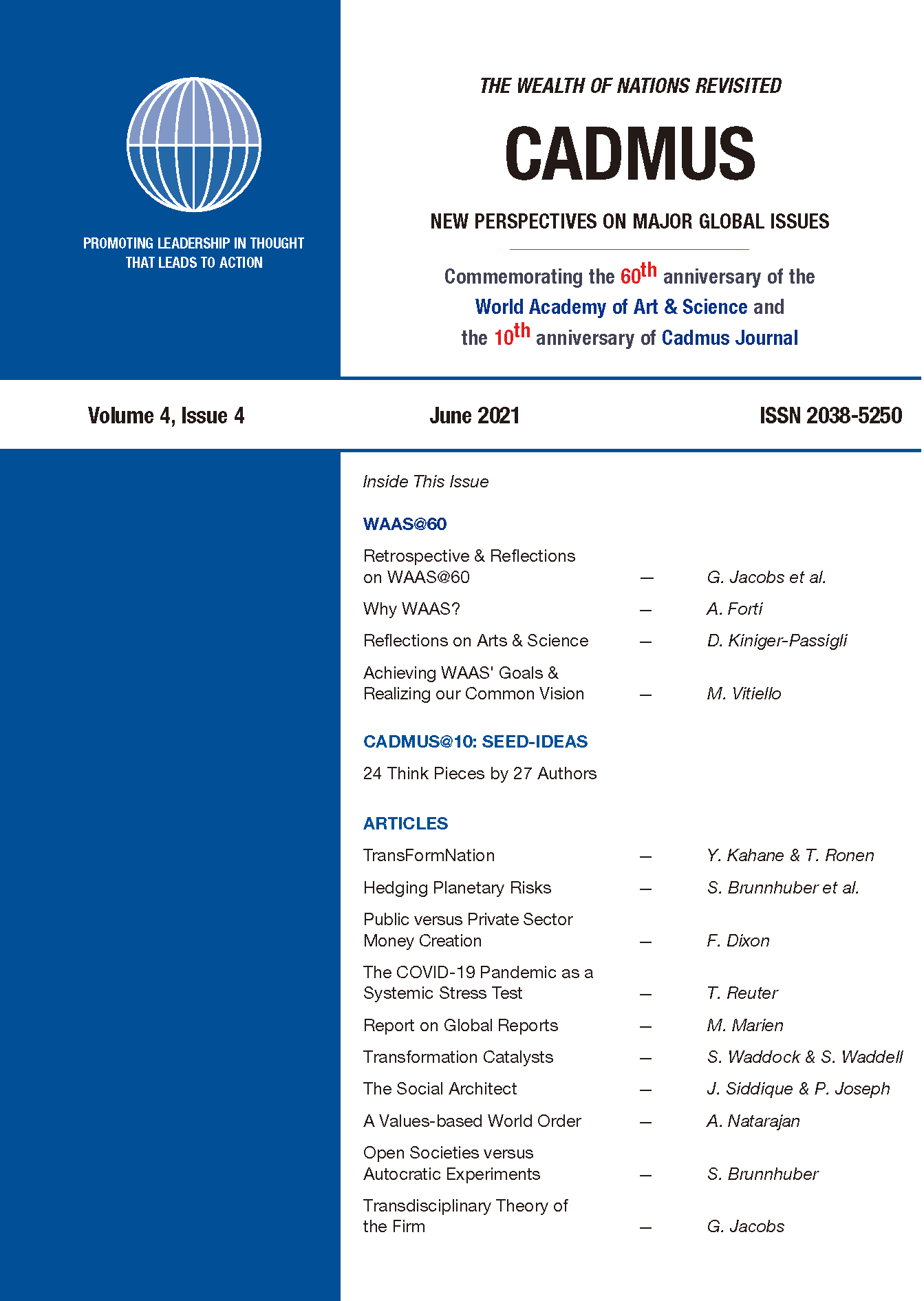
Reuter, Thomas A. 2021. “The COVID-19 Pandemic as a Systemic Stress Test: Who is most vulnerable to food insecurity and other risks in a crisis and why?” CADMUS 4(4):147-152.
Abstract: The COVID-19 pandemic has shown that in a global systemic crisis, differences in impact are not confined to immediate threat, in this case virus infection and mortality rates. Indirect impacts such as reduced affordability of food due to income loss can be and often are more severe. Economic inequality thus acts as a massive amplifier of disaster impact. Inequality literally kills disadvantaged people under crisis conditions. Already the number of people subject to severe food insecurity and poverty has risen dramatically in the wake of COVID-19 and other crises, such as climate change, are adding to this unfolding tragedy. Conversely, policy designed to lower inequality is the best preparation for any crisis, and should accompany all measures for disaster risk reduction and impact mitigation.
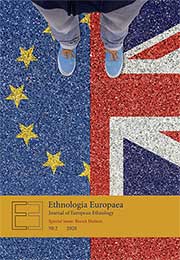
Damsholt, Tine. 2020. "Times of Corona: Investigating the Temporalities of Everyday Life during Lockdown". Ethnologia Europaea 50(2): 137-155.
Abstract: How did the corona lockdown affect the practising of time in everyday life? And how did new experiences of time challenge the established rhythms, pasts, presents, and futures that permeate daily life? During spring 2020, most of us tried to synchronise with new kinds of time in order to protect family members, avoid anxiety, and continue on as best we could. Many of the everyday micro-practices that sequence time into tacit and taken-for-granted rhythms came to a standstill during lockdown, and new daily routines and ideas of past and future were invoked. Through the prism of the Danish lockdown, this article investigates how contemporary lives unfold through multiple temporalities, and how that shapes and changes how we practice and experience time.

Segata, Jean, Patrice Schuch , Arlei Sander Damo and Ceres Víctora. 2021. “A Covid-19 e suas múltiplas pandemias (COVID-19 and its multiple pandemics)”. Horizontes Antropológicos 27(59): 7-25.
Resumo: Este artigo cumpre a função editorial de apresentar o número 59 de Horizontes Antropológicos, intitulado “Covid-19: antropologias de uma pandemia”. A pandemia da Covid-19 tem produzido cenários de exceção e de incerteza, com efeitos epidemiológicos, políticos, econômicos e psicossociais que são descritos em escala global. No entanto, apesar da mecânica biológica da Covid-19 ser baseada em um vírus, com formas de transmissão sensivelmente padronizáveis, as estruturas locais de desigualdade tendem a singularizar as formas de disseminação e agravamento da doença, e, por conseguinte, a intensidade de suas consequências. Por esta razão, este trabalho ressalta o fato de que, ainda que a Covid-19 seja descrita como uma catástrofe em escala global, ela não é universal, pois é performada de maneira diversa, múltipla e complexa, a partir da singularidade de infraestruturas, materialidades, ambientes, relações e hábitos localizados. Por conseguinte, defende-se que o saber-fazer político e qualitativo da antropologia social exerce um papel fundamental no processo de enfrentamento da pandemia, pois, se a Covid-19 não se realiza de forma homogênea, as respostas à sua mitigação também não podem ser homogêneas.
Abstract: This article serves the editorial function of presenting issue number 59 of Horizontes Antropológicos, entitled “Covid-19: anthropologies of a pandemic”. The Covid-19 pandemic has produced scenarios of exception and uncertainty, with epidemiological, political, economic, and psychosocial effects that are described on a global scale. However, despite the biological mechanics of Covid-19 being based on a virus, with sensibly standardizable transmission methods, local structures of inequality tend to singularize the forms of dissemination and aggravation of the disease, and therefore, the intensity of its consequences. For this reason, this work highlights the fact that, although Covid-19 is described as a global-scale catastrophe, it is not universal, as it is performed in a diverse, multiple, and complex way, based on the singularity of localized infrastructures, materialities, environments, relationships, and habits. Therefore, it is argued that the political and qualitative know-how of social anthropology plays a fundamental role in the process of addressing the pandemic, as, if Covid-19 does not occur homogeneously, responses to its mitigation cannot be homogeneous either.
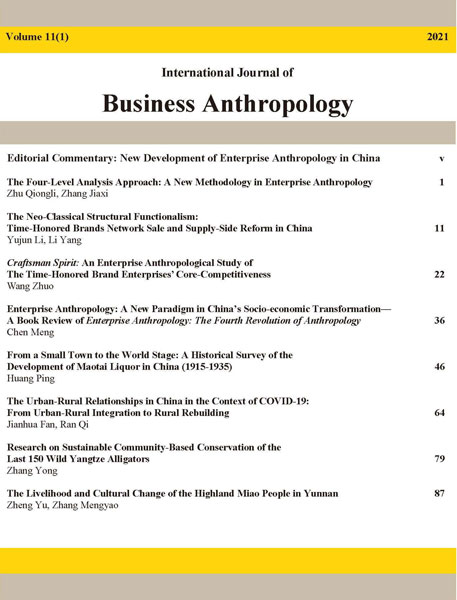
Fan, Jianhua and Ran Qi. 2021. “The Urban-Rural Relationships in China in the Context of COVID-19: From Urban-Rural Integration to Rural Rebuilding”. International Journal of Business Anthropology 11(1): 64-78.
Abstract: Rural villages are the foundations of Chinese Society. City and the countryside, associating with the concept of social organic cycle “falling tree leaves return to the ground,” have supported each other for thousands of years. However, Chinese history in modern times has not developed as it was imagined theoretically. While the city is advancing, the countryside is declining. The duality of urban and rural areas has eroded the countryside, and their relationship has undergone a fundamental transformation. This deformed social structure must be corrected. Therefore, since the founding of the People’s Republic of China in 1949, the work to reconcile the contradictions between urban-rural relationships runs through the entire process of China’s socialist modernization. This provides the logical main line of the urban-rural integration. City is a consumption group, and it does not have a production function, and the raw materials needed for urban development are all obtained from the countryside. Unlike cities, rural areas have always been production bases. However, limited by the scarce economic structure of self-sufficiency, if a rural village wants to prosper, it must rely on the urban market. As a result, the dual nature of the interaction between urban and rural economic development has conditioned that the urban-rural relationship is an interdependent, mutually restrictive and inseparable balanced one. This also means that the fundamental essence of urban-rural integration lies in the rebuilding of the rural social pattern from a modern perspective. In the spring of 2020, the COVID-19 disconnected the rural and urban areas in China, which caused a major blow to both cities and rural areas. When the organic cycle of the society is broken, the city will suffer first, and the countryside also cannot avoid economic losses. The cities and the countryside seem to have truly fallen into what Fei Xiaotong calls “the tragedy of urban bankruptcy and rural primitivization”. Examining the urban-rural relationship under the epidemic, we see that the countryside has become a buffer for social distress and a refuge for urban crises. In the post-epidemic phase, rebuilding a more flexible and resilient organic cycle is the theme of urban-rural relations.
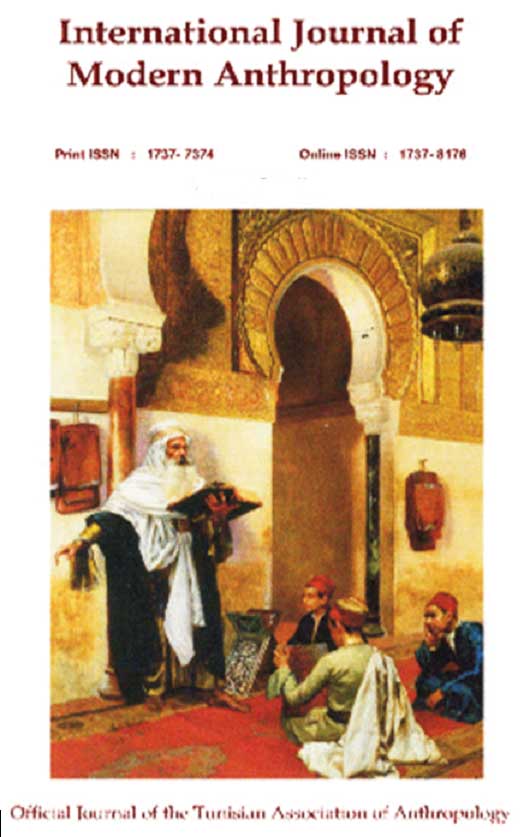
Adeyemi, Kayode. 2021. “Misinformation about COVID-19 among internet users in Nigeria: Tools to effective public awareness, prevention and control”.International Journal of Modern Anthropology2(15): 469 - 482. International Journal of Modern Anthropology 2(18): 896 – 922.
Abstract: Since the World Health Organization announced in early 2020 that the COVID-19 pandemic was accompanied by an infodemic of misinformation, we are left with the question of public perspective-driven compliance to safety measures. This preliminary study evaluated some claims about COVID-19 including vaccine conspiracy theories among Nigerians with factors influencing it. An online structured questionnaire was designed to collect one-time data from voluntary participants. Demographically, major respondents were; bachelor: 284 (75.1%), age-group between 18 and 30 years: 312 (82.5%) and male: 207 (54.8%). Those that do not know the range of infected population in the country accounted for 260 (72.2%). In opinion, 57 (15.1%) supported that SARS-COV-2 cannot survive the warm climate of African continent, and 41 (10.8%) believed the hoax theory about COVID-19. Unapproved herbal medication was reported to be used by 251 (66.4%) of the respondents while 92 (24.3%) made use of Chloroquine. For transmission related conceptions, 52 (13.8%) indicated that an asymptomatic carrier cannot spread the virus to another healthy individual. About half of the respondents 182 (48.1%) suspected that SARS-COV-2 was an engineered virus and 173 (45.8%) supported that there are underlying negative intentions on the clinical trial of COVID-19 vaccines on Africans. There is a weak correlation between the demographic data of the respondents and the claims. The level of misconception Nigerians have about COVID-19 is a major concern. Thus, it is imperative to continuously engage in community awareness and education using proven facts about the virus, and its available prophylaxis measures in order to avoid the dangers that are associated with the prevailing misconceptions.
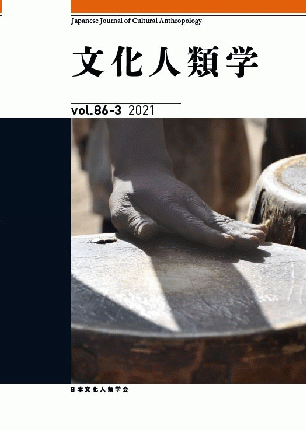
澤野美智子 (Michiko Sawano). 2021. “防護服化できない身体と身体化できない防護服—韓国の「コロナ19」病棟におけるアフェクトの攪乱と再編 (Conflictive Interaction of PPEs and Nurses: Disordering and Reorganizing Affect in South Korean COVID-19 Hospital Wards)”. 文化人類学 (Japanese Journal of Cultural Anthropology) 86(3): 437-456.
抄録: 本稿の目的は、アフェクト論の観点からパンデミック下の医療現場で起きたアクター間の相互作用について検討することである。特に韓国の「コロナ19」病棟における防護服と看護師に注目する。本稿では防護服を病棟内で相互作用しあうアクターのひとつとして捉え、看護師側だけでなく防護服側の視点も交えながらアクターの動きを描き出す。感染症対策マニュアル上では単純に人間をウイルスから防護するだけのはずだった防護服であるが、現場ではそれぞれに物質性と文脈を持つ防護服と看護師、その他のアクターが出会うことで新たな作用が生じ、アフェクトの秩序が乱されたり連続性が失われたりする。これを本稿ではアフェクトの攪乱と呼ぶ。防護服は独特の環境における多様なアクターとの相互作用によって、防護服に合った身体操作をするよう看護師たちを飼いならそうとする。一方で看護師たちは業務を遂行するため、防護服が遮断しようとする防護服外部の刺激を拾い上げようとするとともに、自らの身体と防護服の間に「第3者」を介在させることで防護服を飼いならそうとする。防護服と看護師が接触を継続せざるを得ない状況下、攻防自体は継続して繰り広げられつつも、アフェクトの秩序が再編されてゆく。
Abstract: This paper considers interactions between actors that occur in the medical field during the pandemic using the affect theory. I pay attention to Personal Protective Equipment (PPE) and nurses in South Korean COVID-19 hospital wards. PPEs, nurses, and other actors all have their own materiality and contexts. When they meet and interact in the ward, the order of affect is disrupted, loosening continuity. PPEs attempt to tame nurses to act to suit PPEs. On the other hand, to carry out their work, nurses try to catch stimulus from outside of PPEs, and tame PPEs by interposing a “third actor” between their bodies and PPEs. Under the circumstances where PPEs and nurses have no choice but to maintain contact, the order of affect changes while the conflict continues.
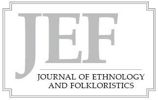
Rodrigues, Jamila. 2022. “”The Beach Is Closed, but Not to Us”: Pandemic Experience and Social Boundaries in Rural Okinawa”. Journal of Ethnology and Folkloristics 16(2): 273–289.
Abstract: This article offers an anthropological and ethnographic perspective on how the COVID-19 pandemic affected and shaped rural community social behaviour in Kayo village during Japan’s first official state of emergency, April 7th to May 6th, 2020. It draws from observations and informal conversations with villagers during this period. First, it discusses the researcher’s experience of living in a rural village in northern Okinawa during the state of emergency and addresses the position of the ethnographer during the pandemic. It explores the Japanese concept of uchi/soto (inside/outside), to discuss the insider/outsider dynamics that characterise everyday social life in Okinawa. Secondly, it engages with Marshall Sahlins’ (2013) idea of kinship as ‘social mutuality’ to consider how the pandemic invites us to rethink interpersonal relationships, space negotiation, and social boundaries, and how the latter are reconstructed and negotiated according to the new situation (emergency state). The example of Okinawa rural communities shows how rural populations can reconceptualise their environment and practices during the pandemic. It allows us to understand how notions of space, accessibility and kinship are reshaped into subtle boundaries between locals and outsiders in order to regulate access.

Chintakindi, Malvya. 2023. “Informal Labour Blues: Effects of Covid-19 and Beyond on Women Belonging to Backward Castes in Hyderabad, India”. Journal of the Indian Anthropological Society 58(1): 89-111.
Abstract: COVID-19 struck people all over the world, indiscriminately, altering human living conditions as we know it. It had disproportionate effects on those less fortunate, especially women in marginalized communities. This research delves into the short-term and potential long-term effects of COVID-19 on women belonging to backward castes engaged in informal labour work in the city of Hyderabad, state of Telangana, India. This in-depth ethnographic inquiry observed the research participants within their localities for over a year (2020-2021) and adopts an approach rooted in intersectionality and complexity Semi-structured interviews, in-depth interviews and participant observation were employed across a sample of 30 women participants. Findings indicate that the economic impact of the pandemic on informal labour is multifold where women’ jobs are the household’ only salvation. Participants reported receiving none to scattered benefits from governmental and non-governmental actors. As is the case in informal labour markets, lack of job security and safety nets skyrocketed participants’ anxiety for a secure future. The gendered effects of the pandemic are observed through women’ unfulfilled dietary needs and their increased household work. Domestic violence is prevalent in these communities. There is high trust in available COVID-19 vaccines.
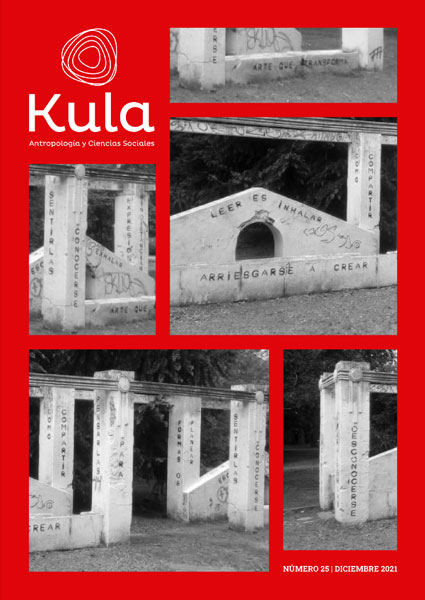
Pietronave, Matías. 2021. “Aproximaciones al aislamiento social y el distanciamiento corporal de las vejeces femeninas en cuarentena”. Kula. Antropología y Ciencias Sociales 25: 19-34.
Resumen: Este artículo se propone abordar la producción del mundo social en el contexto de pandemia desde la perspectiva de un grupo de mujeres que residen en una institución geriátrica de la ciudad de Azul, en la provincia de Buenos Aires. Partimos de la necesidad de desnaturalizar la experiencia de la vejez con los conceptos de “vejeces” y “vejez diferencial”. Asimismo, nos proponemos problematizar las tensiones que derivan de la paradoja según la cual el cuidado físico-fisiológico de las personas mayores implica una ruptura con los entornos sociales previos. Teniendo en cuenta ello analizamos las distintas formas en que un grupo de mujeres viven y se representan las medidas sanitarias de aislamiento social y distanciamiento corporal. Finalmente, utilizaremos el concepto de “espacio transicional” para describir la producción de un espacio simbólico donde se recrean las relaciones sociales y se comparten momentos de intimidad sin romper las restricciones que la institución implementó.
Abstract: This article aims to address the production production of the social world in the context of a pandemic from the perspective of a group of women who reside in a geriatric institution in the city of Azul, in the province of Buenos Aires. We start from the need to denaturalise the experience of old age with the concepts of “old ages” and “differential old age”. Likewise, we propose to problematise the tensions that derive from the paradox according to which the physical-physiological care of the older adults implies a separation from previous social environments. With this in mind, we analyse the different ways in which a group of women inhabit spaces since the beginning of quarantine. Finally, we will use the concept of “transitional space” to describe the production of a symbolic space where social relations are recreated and moments of intimacy are shared without breaking the restrictions that the institution implemented.
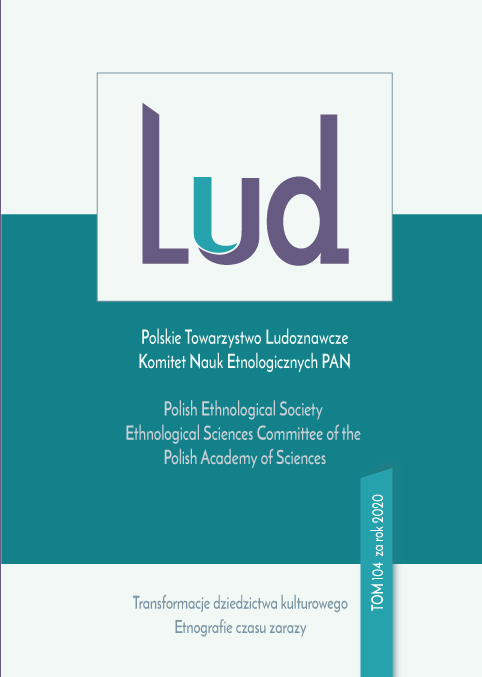
Jóźwiak, Ignacy, Monika Szewczyk, Sonia Styrkacz and Elżbieta Mirga-Wójtowicz. 2020. “Keep calm and beshen khere. Internet i transnarodowa intensyfikacja życia polskich Romów w czasie pandemii COVID-19 (Keep calm and beshen khere. Internet and transnational intensification of life among Polish Roma under the COVID-19 pandemic).” Lud. Journal of Polish Ethnological Association 104: 235-257.
Abstrakt: Artykuł podejmuje, nieobecną do tej pory w polskich badaniach romologicznych, tematykę internetowych (rodzinnych i towarzyskich) praktyk polskich Romów. Głównego kontekstu dostarcza pandemia koronawirusa (Covid-19) i towarzyszący jej stan zamknięcia (lockdown) i konieczność zachowania tzw. dystansu społecznego w okresie od połowy marca do końca kwietnia 2020 roku. Badania przeprowadzone zostały online wśród polskich Romów w Polsce i zagranicą. Internet stanowi dla nas źródło informacji oraz możliwość kontaktu z uczestnikami badania. Wskazujemy tym samym na specyfikę „romskiego internetu” zarówno przed pandemią, jak i w jej trakcie. W tym obszarze zwracamy uwagę na zjawisko „wpasowowania się” internetu w kulturę romską i związane z nią prawo zwyczajowe. Na tym gruncie wprowadzamy pojęcie e-romanipen oznaczające przeniesienie kultury romskiej i w przestrzeń online. Internetową aktywność w czasie pandemii interpretujemy jako przejaw kolektywnej sprawczości i kreatywności w działaniach na rzecz spójności grupy w sytuacji zagrożenia.
Abstract: The article focuses on online social practices of the Polish Roma. The main context is provided by the COVID-19 epidemic accompanied by a period of lockdown from mid-March to the end of April 2020 and the necessity of social distancing. The research was conducted using online social interactions among the Polish Roma in Poland and their kin living abroad. As such, the internet functions as a source of information and opportunity to maintain social relations between the research participants. We point to the specifics of the Roma-generated online content before and after the pandemic. In this respect, we emphasize the way Roma culture and norms of common law “fit into” the Internet. It is on this ground that we introduce the concept of e-romanipen which describes the online shift in Roma culture. We interpret the intensification of online activity under the COVID-19 pandemic as an expression of collective agency and creativity aimed at cultural reproduction and maintenance of group cohesion at the time of threat and existential insecurity.
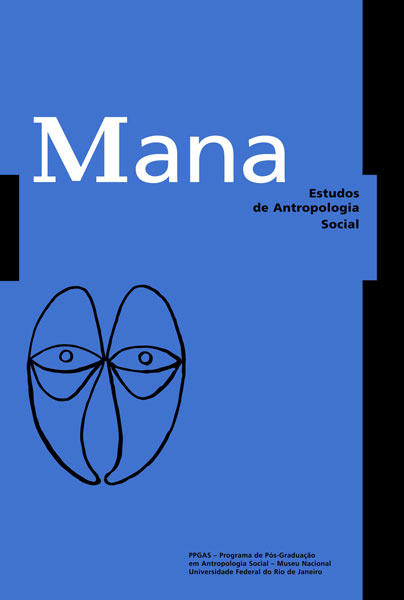
Vianna, João, Afonso Fontes and Ilda da Silva Cardoso. 2022. “’A DOENÇA DO MUNDO’: XAMANISMO BANIWA CONTRA A PANDEMIA (‘The illness of the world’: Bainwa shamanism against the pandemic)”. Mana 28(1): 1-33.
Resumo: Este artigo explora a pesquisa de um iñapakaita, benzedor, Afonso Fontes, homem baniwa do clã Hoohodene, por uma encantação xamânica para uma doença: a covid-19. Essa busca será compreendida como inventiva, nos termos da dialética wagneriana (2010), pois ocorre a partir de seus conhecimentos do cosmos, dos mundos mítico e atual, não humanos e humanos, indígenas e não indígenas. A análise das fórmulas verbais contidas na encantação de Afonso contra o coronavírus descreverá o seu caráter composicional, explicitando perspectivas a partir das quais são constituídas, bem como a agência xamânica atua na reordenação do cosmos. Por fim, realizam-se apontamentos de ordem especulativa, desde uma crítica xamânica, sobre o surgimento das doenças como conectadas a outros colapsos e associados ao modo de vida dos não indígenas no Antropoceno.
Abstract: This article explores how a healer (iñapakaita), Afonso Fontes, a Baniwa man of the Hoohodene clan, searches for a shamanic incantation against an unknown disease: Covid-19. The iñapakaita's quest is understood to be inventive, in terms of Wagnerian dialectics (2010), because it derives from his knowledge of the cosmos, of mythical and actual worlds, of non-human and human, and of indigenous and non-indigenous. The analysis of the verbal formulas contained in Afonso's incantation against the coronavirus describes their compositional character, making explicit the perspectives from which they are constituted, as well as the shamanic agency in reordering the cosmos. Finally, starting from a shamanic critique, the article speculates on the emergence of illnesses as connected to other collapses and associated with the way of life of non-indigenous people in the Anthropocene.
Resumen: Este artículo explora la investigación realizada por un iñapakaita, benzedor, Afonso Fontes, un hombre baniwa del clan Hoohodene, en la procura de un encantamiento chamánico para una enfermedad desconocida: el Covid-19. La búsqueda se entenderá como inventiva, en los términos de la dialéctica wagneriana (2010), porque se produce a partir de su conocimiento del cosmos, de los mundos míticos y presentes, no humanos y humanos, indígenas y no indígenas. El análisis de las fórmulas verbales contenidas en el encantamiento de Afonso contra el coronavirus describirá su carácter compositivo, explicando las perspectivas desde las que se constituyen, así como la agencia chamánica en la reordenación del cosmos. Por último, se hacen apuntes especulativos, desde una crítica chamánica, sobre la aparición de enfermedades entendidas como conectadas a otros colapsos y asociadas al modo de vida y a las elecciones de los no indígenas en el Antropoceno.
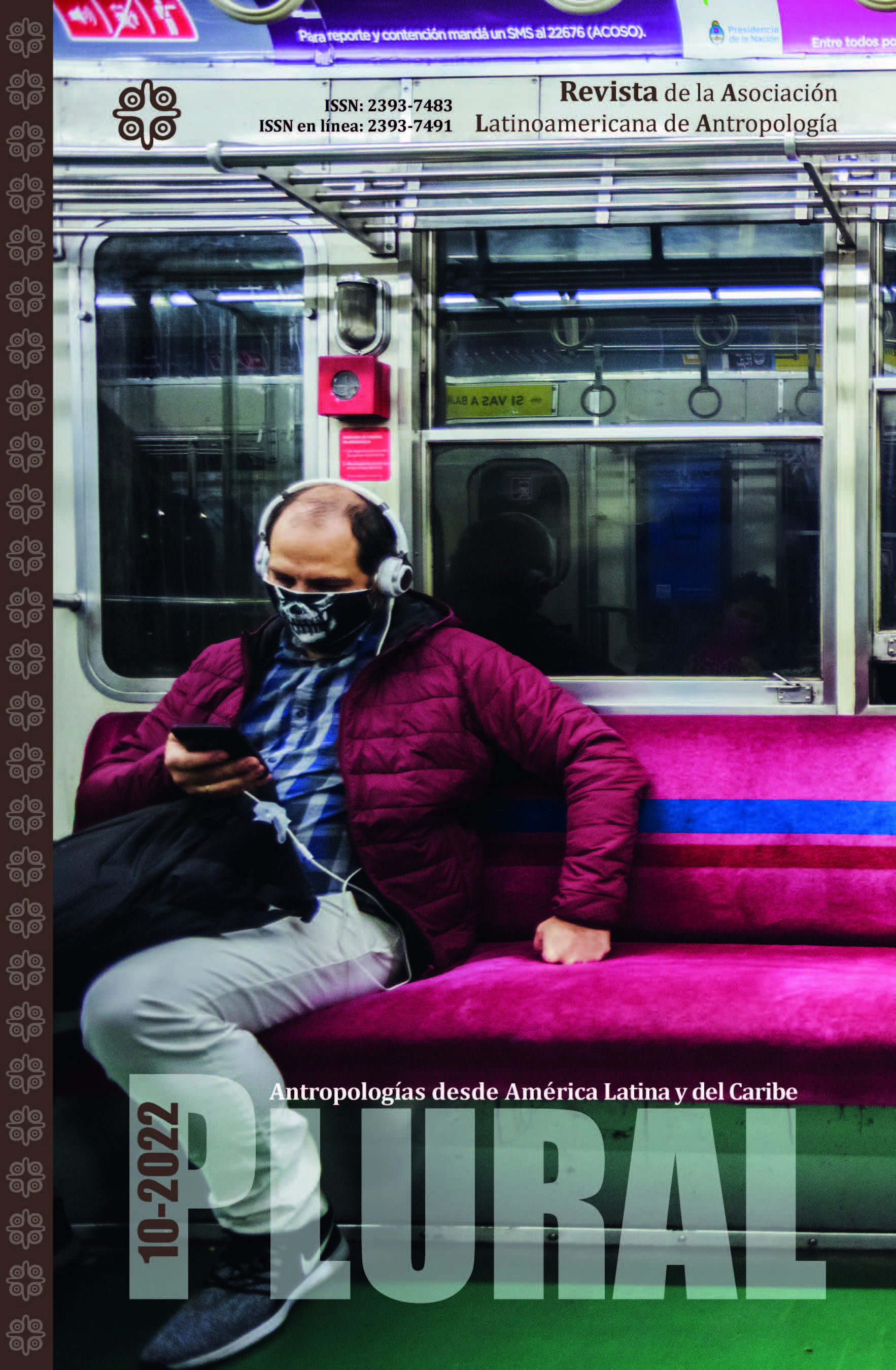
Pérez, Fernando Represa and Michael Vina. 2023. “Comunidades pesqueras bajo la pandemia del COVID-19 en la costa sur de la provincia de Manabí (Ecuador)”. PLURAL, revista de la Asociación Latinoamericana de Antropología 10: 413-435.
Resumen: La pandemia del COVID-19 ha tenido fuertes impactos en la sociedad ecuatoriana, especialmente entre los grupos y colectivos más vulnerables como son los conformados por los pescadores artesanales, los asalariados en barcos industriales o los trabajadores en la industria procesadora de pescado. Este artículo propone un acercamiento a estos colectivos vinculados a la pesca que, a menudo, constituyen el corazón económico de comunidades enteras, particularmente en el ámbito rural, tal como sucede en la costa central ecuatoriana. La investigación, por tanto, se basa en estudios etnográficos realizados por ambos autores en varias comunidades pesqueras de la costa sur de Manabí desde 2014 hasta la actualidad, articulando los conceptos de globalización desde abajo y de sindemia para abordar los diferentes impactos que la propagación del COVID-19 ha tenido en el tejido pesquero más vulnerable, comprometiendo sus medios de vida y obligándolos a pergeñar múltiples estrategias en un entorno cambiante, sometido a diversos, y asimétricos, desarrollos socioeconómicos que están modificado los significados del paisaje marino. El trabajo concluye que las estrategias de adaptación de los pescadores se insertan en un contexto de volatilidad institucional y económica que implica procesos no lineales cambiantes entre el centro y las fronteras marginales del sistema económico globalizado
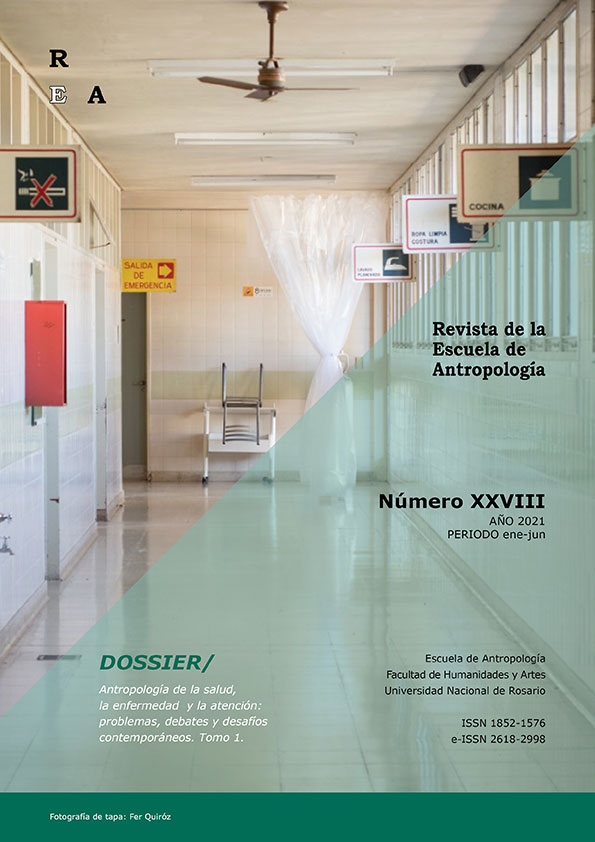
Menéndez, Eduardo. 2021. “Pandemia y autoatención: la negación y subalternización de los saberes populares”. Revista de la Escuela de Antropología 28.
Resumen: La pandemia de COVID-19 evidenció una vez más la hegemonía de la biomedicina, y no solo respecto de las medicinas académicas china, hindú y japonesa, así como de las medicinas tradicionales latinoamericanas, sino también respecto de los procesos de autoatención, pese a que éstos fueron los principales mecanismos preventivos que utilizaron los sujetos y microgrupos para enfrentar la pandemia de Covid-19 hasta que se comenzó a aplicar la vacuna contra el coronavirus. Más aún, la Organización Mundial de la Salud, la Organización Panamericana de la Salud y los aparatos médico/sanitarios de los países a nivel mundial, actuaron de tal manera que la autoatención apareció como un mecanismo técnico biomédico en lugar de ser considerado como un proceso desarrollado y aplicado por la población. Por lo que en este texto describo y analizo el concepto de autoatención, diferenciándolo del concepto biomédico de autocuidado, tratando de evidenciar los mecanismos de hegemonía que desarrolla la biomedicina para opacar los verdaderos actores de la autoatención, así como la subalternización de los mismos y la necesidad de que estos asuman el papel decisivo que han cumplido tanto en términos positivos como negativos.
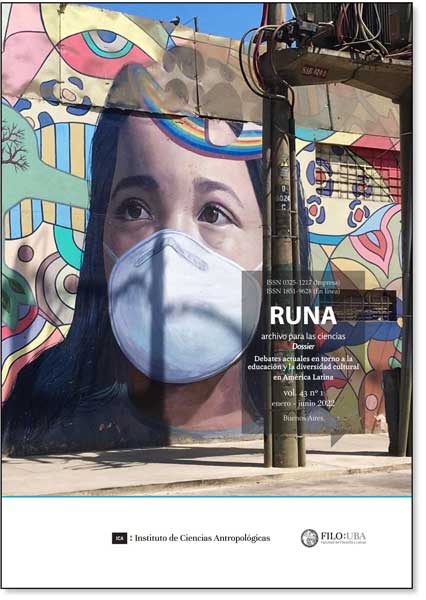
Hornberger, Nancy H.. 2022. “Espacios ideológicos/de implementación en la planificación y política lingüística de la era COVID. Perspectivas desde comunidades indígenas del Sur global (Ideological/implementational spaces in Covid-era language policy and planning. Perspectives from Indigenous communities in the Global South)”. RUNA, archivo para las ciencias del hombre 43(1): 15-36.
Resumen: Desde la perspectiva de la política y la planificación lingüísticas (PPL), la actual pandemia exacerba preocupaciones en torno a las políticas y prácticas lingüísticas y educativas que sostienen las desigualdades sociales globales en distintas poblaciones e identidades. Hay una urgente necesidad de que los usuarios, educadores e investigadores de idiomas contrarresten esas desigualdades, llenando y abriendo espacios ideológicos y de implementación para que florezcan múltiples lenguas, literacidades, identidades y prácticas en el aula, la comunidad y la sociedad en general. Utilizando el lente de los espacios de implementación/ideológicos escalados e interactivos, y centrándome en cuatro estudios etnográficos de la educación indígena en los Andes y México, exploró dinámicas entrelazadas de la PPL que podrían aprovecharse para enfrentar las desigualdades cada vez mayores que ha agravado la COVID-19 respecto del acceso a educaciones indígenas y en las prácticas indígenas de hablar y ser.
Abstract: From a language policy and planning (LPP) perspective, the current global pandemic exacerbates long-standing concerns about language education policies and practices that sustain social and global inequalities across linguistic and social populations and identities. There is an urgent need for language users, educators, and researchers to counter those inequalities by filling and opening ideological and implementation spaces for multiple languages, literacies, identities, and practices to flourish in classroom, community, and society. Here, using the lens of scaled and interactive implementational and ideological spaces, and focusing on four ethnographic studies of Indigenous education in the Andes and Mexico, I explore intertwined dynamics of LPP that could be harnessed to address the widening inequalities Covid has wrought in access to Indigenous education and in Indigenous practices of speaking and being.
Resumo: De uma perspectiva de política e planejamento lingüístico (PPL), a atual pandemia global exacerba as preocupações sobre políticas e práticas de educação lingüística que sustentam desigualdades sociais e globais entre populações e identidades lingüísticas e sociais. Há uma necessidade urgente de que os usuários de línguas, educadores e pesquisadores combatam essas desigualdades, preenchendo e abrindo espaços ideológicos e de implementação para que múltiplas línguas, literaturas, identidades e práticas floresçam na sala de aula, na comunidade e na sociedade. Aqui, usando a lente de espaços ideológicos e de implementação em escala e interativos, e focalizando quatro estudos etnográficos de educação indígena nos Andes e no México, exploro dinâmicas de la PPL que poderiam ser aproveitadas para abordar o aumento das desigualdades que a Covid trouxe no acesso à educação indígena e nas práticas indígenas de falar e ser.

Lasco, Gideon. 2020. “Could COVID-19 Permanently Change Hand Hygiene?” Sapiens.
Summary: In recent years, many researchers have expressed concerns that over-sanitized societies are contributing to autoimmune disorders, allergies, and inflammatory conditions. This “hygiene hypothesis” is controversial, but there’s no question that scientists and the public have been awakening to the fact that some microbes can be beneficial. Yet in the midst of the COVID-19 pandemic, everyone is understandably consumed by the process of hand sanitizing, and many people are finding it nearly impossible to buy sanitizer online or in stores. People who just weeks ago purposely petted dogs to boost the diversity of their microbiomes now find themselves disinfecting their hand sanitizer bottles with antibacterial wipes. To understand this sudden change, it is revealing to explore the complex history and anthropology of hand cleansing. What motivates people’s handwashing habits? How do beliefs about sanitizers and microbes figure in? How have previous epidemics led to shifts in these notions? And what might the post-COVID future hold for hand hygiene?
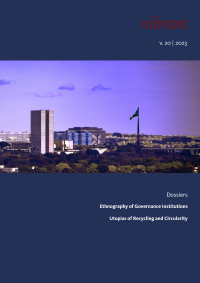
Sordi, Caetano, Jean Segata and Bernardo Lewgoy. 2022. “Covid-19 and disaster capitalism: ‘Passando a boiada’ in the Brazilian meat processing chain”. Vibrant: Virtual Brazilian Anthropology 19.
Abstract: The article discusses the social impacts of the COVID-19 pandemic on the meat processing industry in southern Brazil. Based on the notion of disaster capitalism, we examine how political and corporate agents have taken advantage of the health catastrophe to create a privileged space for simplifications and deregulation in this sector. According to our reasoning, they accelerate precarious work in the meat industry and amplify the harmful effects of agribusiness on local ecologies and global ecosystems. In light of this, we also emphasize the analytical potential that results from the intersection between the categories of syndemics and structural violence to displace the traditional analyses of risk groups and behaviors in highlighting environments and their agents.
Resumo: O trabalho discute os impactos sociais da pandemia de Covid-19 na indústria de processamento de carne no sul do Brasil. A partir da noção de capitalismo de desastre, examinaremos o modo como agentes políticos e corporativos têm tirado proveito da catástrofe sanitária para constituição de um espaço privilegiado para simplificações e desregulamentações neste setor. Em nosso argumento, elas aceleram a precarização do trabalho na indústria da carne e amplificam os efeitos nefastos do agronegócio sobre as ecologias locais e os ecossistemas globais. Face a isto, destacaremos ainda o potencial analítico que resulta da intersecção entre as categorias de sindemia e violência estrutural, como forma de deslocar as tradicionais análises de grupos e de comportamentos de risco para colocar em relevo os seus ambientes e os seus agentes.
